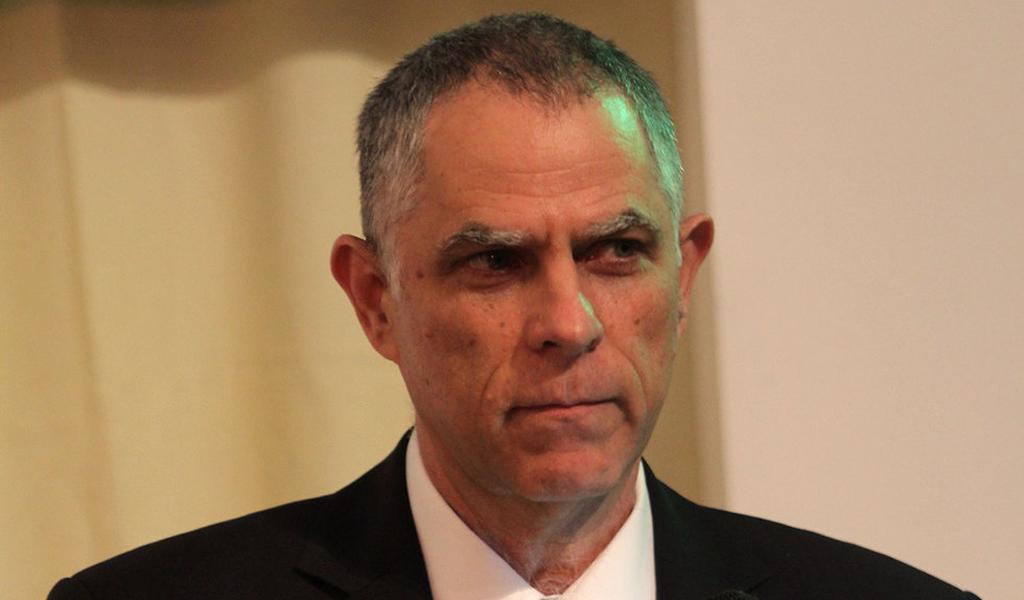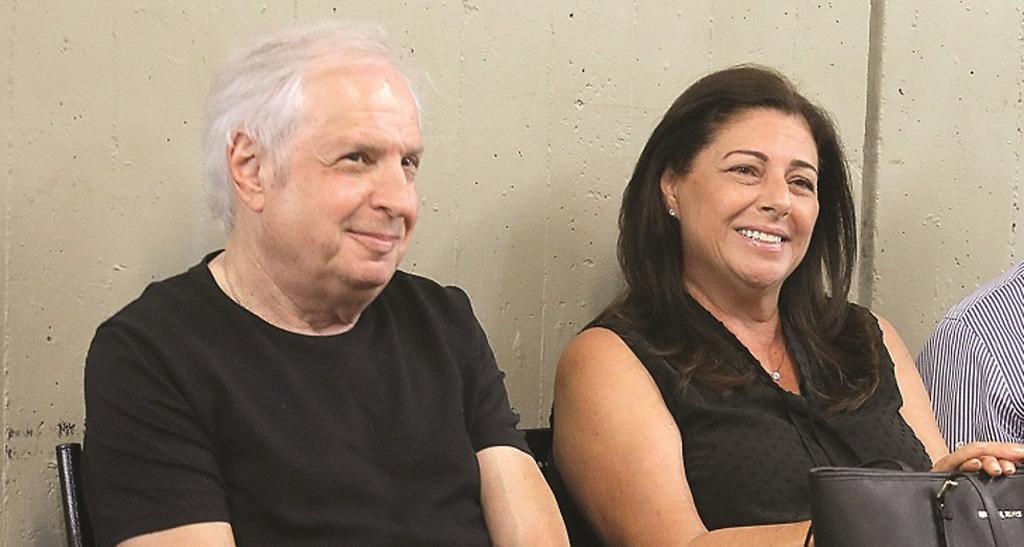Getting your Trinity Audio player ready...
Prime Minister Benjamin Netanyahu was indicted on corruption charges on Thursday, throwing him into a legal limbo and driving the country deeper into political crisis.
6 View gallery


Benjamin Netanyahu speaking after AG Avichai Mandelblit announced he is indicting the prime minister for corruption
(Photo: Prime Minister's Residence)
Netanyahu, 70, denies all wrongdoing. But he now faces a legal process that could drag on for years, leading a nation in political deadlock after two inconclusive elections this year.
Here is a guide to the criminal cases against him:
What are the allegations?
Attorney-General Avichai Mandelblit announced that he has filed criminal charges against Netanyahu in investigations listed as cases 1000, 2000 and 4000.
6 View gallery


A protest against Benjamin Netanyahu in Jerusalem after charges were announced Thursday. The banner in red reads: Parting from Netanyahu
(Photo: EPA)
CASE 1000 centers on allegations that Netanyahu and his wife Sara wrongfully received almost 700,000 shekels (about $200,000) worth of gifts from Arnon Milchan, a prominent Hollywood producer and Israeli citizen, and Australian billionaire businessman James Packer.
Prosecutors described a “supply-line” of gifts including champagne and cigars.
According to the indictment, Netanyahu used his role in public office to help Milchan with his business interests.
“With these actions the defendant Netanyahu carried out acts of breach of trust that gravely hurt public trust and clean conduct,” the indictment said.
He has been charged with fraud and breach of trust.
6 View gallery


L-R: Late prime minister Ariel Sharon, Benjamin Netanyahu and Arnon Milchan
(Photo: GPO/Archive)
CASE 2000 alleges that Netanyahu negotiated a deal with Arnon Mozes, owner of Israel’s best-selling daily newspaper, Yedioth Ahronoth, for better coverage. Ynet and Ynetnews are part of the Yedioth Ahronoth group.
In return, prosecutors say, the prime minister offered legislation that would slow the growth of a rival daily newspaper. In this case Netanyahu has been charged with fraud and breach of trust and Mozes has been charged with offering a bribe. Mozes too denies wrongdoing.
“By using his stature and power of office in order to receive favors and by being the most senior publicly elected official, he conveyed a message according to which offers of bribery are a means that can be used in order to further the mutual interests of senior public officials and business people and that there is nothing wrong with bribery,” the indictment said.
CASE 4000, the most serious of the three, alleges that Netanyahu granted a series of regulatory favors worth around 1.8 billion shekels (about $500 million) to Israel’s leading telecommunications company, Bezeq Telecom Israel.
In return, prosecutors say, he sought positive coverage of him and his wife on a news website controlled by the company’s former chairman, Shaul Elovitch.
According to the indictment, Netanyahu maintained a “give and take” relationship with Elovitch and his wife, Iris.
Netanyahu has been charged with bribery, as well as fraud and breach of trust, in this case. Elovitch and his wife, Iris, have been charged with bribery and obstruction of justice. The couple denies wrongdoing.
What does Netanyahu say?
Netanyahu denies any wrongdoing and says he is the victim of a politically orchestrated “witch hunt” by the media and the left to oust him from office.
Loyalists in Netanyahu’s right-wing Likud Party have accused the justice system of bias, and Netanyahu has argued that receiving gifts from friends was not against the law.
His legal team says criminal probes into the relations between politicians and the news media would be a threat to a free press, a central pillar of any democracy.
Will a trial begin soon?
Unlikely. It could take many months before the cases are brought before the court. Netanyahu could also seek a plea deal rather than stand trial.
Netanyahu’s allies in parliament have said they would push to grant him parliamentary immunity from prosecution. But with Israeli politics in unprecedented turmoil, it is unclear whether such a move is even possible.
Could he go to jail, if convicted?
Bribery charges carry a sentence of up to 10 years in jail and/or a fine. Fraud and breach of trust carry a prison sentence of up to three years.
Will there be political fallout?
Netanyahu has dominated Israeli politics for more than a decade. But both he and his main centrist rival Benny Gantz of the Blue and White party have failed to form a government after two elections, in April and September, leaving the country in political and economic stasis.
If there is no political breakthrough in the next 21 days, Israel will face yet another election, which few want.
If he is still in office as prime minister after that, Netanyahu would be under no strict legal obligation to quit. According to Israeli law, a prime minister must step down if ultimately convicted, but can stay in office throughout legal proceedings, including appeals.




